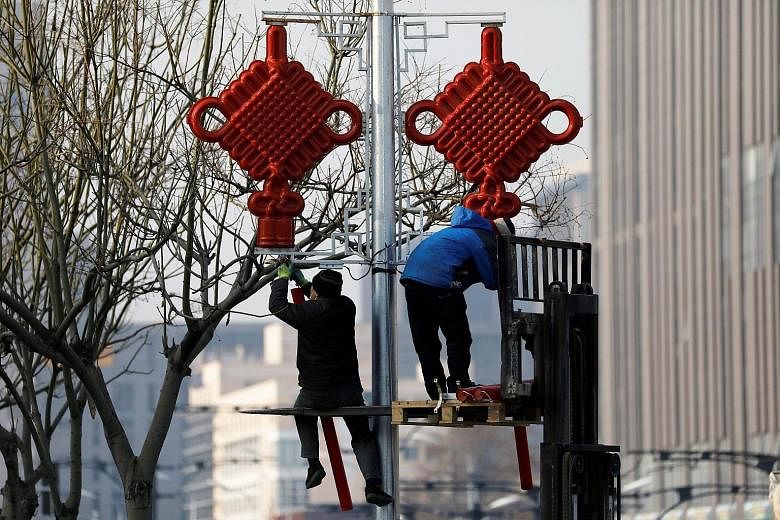For the first time since he started working in Beijing three years ago, Mr Lu Yi, 21, will not be going home to Hunan for Chinese New Year.
Like millions across China, the salon assistant's travel plans have been scuppered by a resurgence of coronavirus cases in the country this winter, leading to strict domestic travel curbs and even firms offering incentives for employees to work through the holidays.
Most of the new cases were initially confined to several northern provinces. Still, the health authorities were concerned that travel during the Spring Festival could lead to an uncontrolled spread across the country as hundreds of millions return home for what is considered the most important holiday in the Chinese calendar, with its emphasis on family reunions.
The National Health Commission yesterday reported 80 new coronavirus infections, bringing the total number of active infections to 1,800. There were also 92 new asymptomatic cases, which are tallied separately.
Peak travel season, also known as "chunyun", begins on Thursday and will last till March 8. In what is often called the world's largest annual human migration, hundreds of millions of Chinese either travel home during the extended holiday, or take vacations abroad.
Transport officials are already predicting a 40 per cent decrease in travellers from the same period in 2019 - which still translates to about 407 million trips.
Last year's travel season came at the height of the virus outbreak, forcing millions to either delay travel or stay in their home towns amid government-ordered lockdowns.
After a spike in infections that began late last month - with many local transmissions in Hebei, Heilongjiang and even Beijing - the government has urged residents to "celebrate Chinese New Year in place" and avoid travel during the period.
"Our company is giving a small bonus to those of us who have agreed to not go back to our home towns during the new year, so a few of us colleagues are planning to use the money for a nice dinner," Mr Lu told The Straits Times.
"Naturally, my family is disappointed. I am too, to be honest, because everyone keeps talking about reunions but you're alone far away. But they understand this is necessary because of the (outbreak) situation now."
A new wave of Covid-19 cases in provinces like Hebei and Heilongjiang has revived travel restrictions, which means even those who choose to drive home, like entrepreneur Qiu Jihong, cannot do so this year. The Heilongjiang native said he usually makes the 1,700km road trip with his family, stopping over for a night in either provincial capital Harbin or neighbouring Jilin province.
Hotels and guesthouses in both provinces are now wary of taking guests from Beijing, however, after a spike in local transmissions, said the 58-year-old.
"Even if we wanted to drive back, the Beijing government is now discouraging people from leaving, which makes me worry whether or not I'll be able to come back after my visit. And with so many active cases in the north-east (of China), we're also worried about the transmission risk."
The health authorities last Wednesday also announced that those wishing to return home during the upcoming holidays will have to present to the local authorities all-clear results from a nucleic acid test taken within seven days.
Those entering rural villages will also have to go through a 14-day isolation period, where they are highly discouraged from socialising or gathering in crowds.
But for some, the opportunity to spend time with family will be worth the trouble. Private Chinese teacher Lily Wang, 28, who usually conducts virtual classes for foreigners all over China, will return home to Yibin in south-western Sichuan province on Wednesday. "It was a mad rush for everything, not just for air tickets but also to try to book a nucleic acid testing slot."
She added: "There are a lot of inconveniences but, ultimately, this is the most important festival of the year and reunions mean a lot, so it'll all be worth it."

